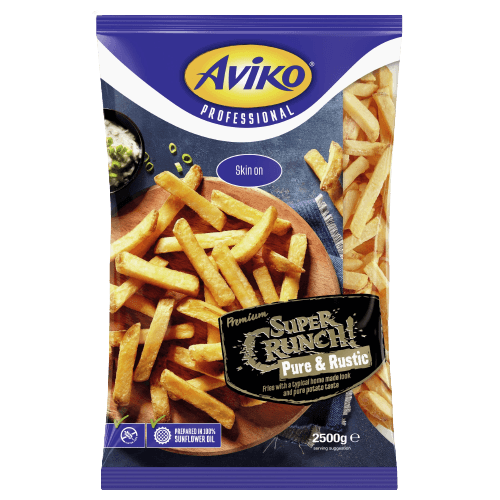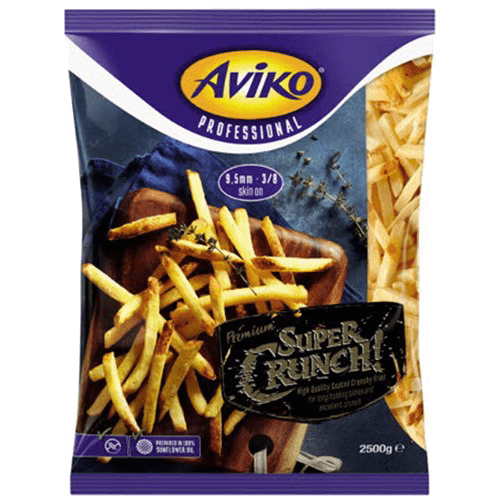
The Best Oils For Deep Frying Chips
There are many factors that contribute towards the perfect fries. Choosing the correct oil for frying chips is of utmost importance as it directly impacts the taste, texture, and overall quality of the product. The right oil can make all the difference between a mediocre fry and a golden, crispy piece of heaven. This article will delve deeper into the best oils to use, the key considerations, industry insights and much more…

Industry Insights
The cooking oil market is projected to register a CAGR of 5.6% during the next five years. The global cooking oil market is driven by the robust demand for organic health-based products. Africa is estimated to grow at the highest CAGR over the forecast period (2023-2027).
Archer Daniels Midland Company, Cargill Incorporated, Bunge Limited, Olam Group Limited and Fuji Oil Group are the major companies operating in the Cooking Oil Market.
In 2019, Malaysia exported 90 million litres of used cooking oil (UCO) to the UK and Ireland. Figures for their exports to other European countries aren't available but the flow of UCO is likely to be similar. With a population of around 33 million, that's close to three litres per head of used oil that's collected and exported to the UK and Ireland alone

Which Oils Should You Use For Deep Frying Chips?
As potato experts, we know the secret to creating the perfect fry lies not only in the quality of the potatoes but also in the choice of oil. To elevate your fry game, it is important to understand the pros and cons in which such oils can have on your fries. After consultation with some of the top chefs in the country and extensive research, the best oil to use for deep frying chips was simmered down into the 3 oils below...
Canola Oil:
Canola oil (AKA rapeseed oil), known for its low levels of saturated fats and high smoke point, is a fantastic choice for deep-frying fries. Its light flavour allows the fries' natural taste to come forward while providing a crispy and golden exterior. Canola oil is also readily accessible and budget-friendly, making it a popular option in many kitchens. Don't allow your customers to leave with a chip on their shoulder, fry up our award winning SuperCrunch Pure & Rustic with this popular oil.
Peanut Oil:
Peanut oil is a champion when it comes to deep frying fries. With its high smoke point and neutral flavour, it allows the natural flavours of the potatoes to shine through. This is important because you want the heat to be high enough to cook the chips quickly and make them crispy and a light, delicate texture, making it a popular choice among professional chefs. Research has shown that our SuperCrunch Thick Cut and Peanut Oil are a match made in heaven.
Sunflower Oil:
Sunflower oil is a common frying oil that contains high levels of oleic acid, a monounsaturated fat that is also found in canola and peanut oils. Industry experts state that chips cooked in olive oil may have lower levels of injure, particularly due to the high content of oleic acid. Sunflower oil is also a good source of linoleic acid, an essential fatty acid that the human body cannot produce. Linoleic acid is thought to be beneficial for cardiovascular health and has been shown to lower blood pressure and reduce inflammation. Overall, sunflower oil is a versatile and healthy frying oil due to its high oleic acid content, low levels of saturated fats, and beneficial nutrients. Treat your customers to Superlong Shoestring Fries with this delicate oil.

Sustainability within the Cooking Oil Industry
Many people overlook the environmental impact of cooking oils, which is significant. The biggest issues with cooking oils include land use, deforestation, chemical runoff, pollution and emissions. Each oil has its own unique environmental trade-offs.
For example, palm oil is extremely efficient but results in major deforestation, while sunflower oil has a low carbon footprint but uses a lot of water. Like any big business, it's industrialized, commodified, and optimized for profit — sometimes at the expense of the environment and sustainability. We will look at the factors that make them sustainable and how you can make better choices and make a real difference.
Canola Oil:
Canola is among the most efficient oil crops in terms of water use, and it's also got a favourable yield of cooking oil. Around 45% of the canola seed consists of oil (fat), which is double that of soybeans.
However, canola oil production does have environmental issues, including significant land use, pesticide usage (which appear to be affecting wild bee populations), and the use of large amounts of fertilizers and other chemicals.
Most commercial canola oil is extracted using hexane, an industrial solvent associated with toxicity and air pollution.
You can avoid some of these issues by buying organic, expeller-pressed canola oil.
Peanut Oil:
On the whole, peanuts and peanut oil are refreshingly sustainable and environmentally friendly.
As legumes, peanuts are nitrogen-fixing with the ability to restore depleted soils, and their deep roots (reaching over two meters into the soil) reduce the need for freshwater irrigation.
The main downside of peanut oil is its relatively high omega-6 linoleic acid content, which is harmful for health when consumed in excess.
Sunflower Oil:
Sunflower oil has a relatively low carbon footprint and typically uses lower amounts of herbicides than other oil crops (sunflowers are allelopathic, meaning they naturally kill off competing plants, like weeds).
However, sunflowers use a relatively large amount of water (but still only half as much as olive oil, on average) and are often produced using destructive pesticides.
In addition to its environmental impact, sunflower oil tends to contain higher levels of inflammatory linoleic acid than most other vegetable oils.
The good news is that you can consume Canola, Peanut and Sunflower Oil in a more environmentally responsible manner. Look for the appropriate certifications and guarantees from credible organizations when you shop for these oils. When it comes to choosing more sustainable food options, it’s tough to strive for perfection, but small changes really do make an enormous difference over time

Smoke Points: What are they & why it matters
The smoke point of an oil is the temperature at which it begins to break down, releasing smoke and acquiring an unpleasant taste. For deep-frying at higher temperatures, it is essential to choose an oil with a high smoke point. This ensures that the oil maintains its stability, avoiding the risk of imparting a burnt flavour to your chips.
- Canola oil: Smoke point of around 204°C (400°F)
- Peanut oil: Smoke point of around 232°C (450°F)
- Sunflower oil: Smoke point of around 227°C (440°F)
- Soybean oil: Smoke point of around 232°C (450°F)
- Corn oil: Smoke point of around 232°C (450°F)

Cooking Oil & The Cost of Living Crisis: What it Means For Your Restaurant
Rocketing cooking oil costs could see 3,000 fish and chip shops close, a trade body has warned.
"The price of Sunflower oil has risen by 47% in a matter of weeks" Andrew Crook, president of The National Federation of Fish Friers stated.
The price of sunflower oil rose from £30 for a 20-litre drum of oil at the beginning of April to £44 last week, leaving many chained operators with further reduced profit margins or increased prices to operate.
Crook continued: “It really is the perfect storm, and I think businesses are definitely in trouble.”
He confirmed palm oil had risen from £14 to £29 for 20 litres, and he expects it to rise “beyond £30 or £40 pounds in the next weeks”.
“With the conflict in Ukraine, because a lot of sunflower oil comes from the country, not only forcing the price up for sunflower, but palm oil too because everyone's trying to buy as much as they can.”
Crook claimed Indonesia's announcement of a ban on palm oil exports was “worrying”, as the industry gets around a fifth of its palm oil from the country.
Storing and Recycling Cooking Oil
Over 825,000 litres of used cooking oil was collected from Stonegate Pub Company’s kitchens and recycled last year, it has emerged. Stonegate estimates that the measures it takes to recycle oil are the equivalent of saving 1,412 tonnes of carbon a year.
If you produce waste cooking oil as part of your catering business, then you must ensure that it is stored properly. No oil is allowed to spill, and it must be collected by an authorised collector. They will take your waste to an authorised site for recovery or disposal. Waste cooking oil must not be poured down drains or sewers because this causes:
- Blockages
- Bad smells
- Vermin issues
- Polluted watercourses leading to problems for wildlife
- If waste cooking oils poured down drains or sewers, it can result in potential prosecution




